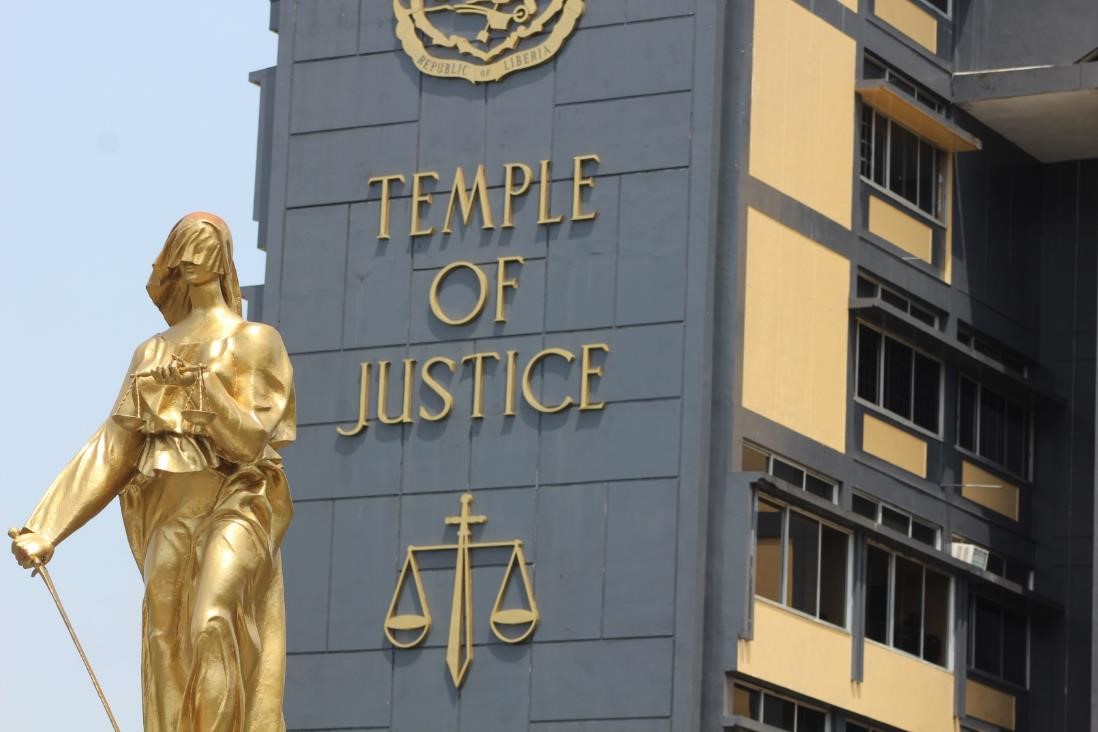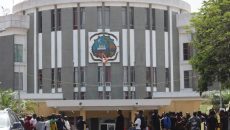Associate Justice Kabineh Ja’neh was impeached by the House of Representatives in August 2018. He was convicted and removed from office by the Senate on March 29, 2019. He faced four counts in the bill of impeachment; however, he was found guilty on one count: the Road Fund.
For many onlookers like me, his removal from office was certainly because of his dissenting opinion in December 2017 in the case brought before the court by Liberty Party regarding irregularities in the October 2017 presidential elections – an opinion that was not in the favor of the Coalition for Democratic Change of President George Weah.
But was that really the case?
Justice Ja’neh’s Opinion in the Case
According to a report from UNMIL, “Justice Ja’neh’s argument was that the Liberty Party and Unity Party proved beyond a reasonable doubt to substantiate their claims that the conduct of the October 10, presidential and legislative elections was marred by irregularities and fraud and warrants a rerun, of which the majority disagreed.â€
It was clear cut. Ja’neh’s opinion did not favor the CDC and they wanted to get him off the Supreme Court bench. That was my opinion in March 2019 when I heard that the senators had given the president his desire to interfere with our already distrusted judiciary.
My initial views were confirmed when a replacement was announced less than a week after the conviction. However, I have uncovered old materials that would suggest that Justice Ja’neh’s removal from office was not merely because of his dissenting opinion in 2017 or the Road Fund writ, but that the CDC disapproval of him on the Supreme Court goes back as far as 2006. Please let me explain.
Bad Human Rights Record
I cannot still fathom the reality that our senators, who were expected to know better, allowed themselves to be used by the CDC to remove a Supreme Court justice in a clear violation of the constitution of Liberia, which argues that members of the judiciary cannot be removed from office for decisions made in the course of their duties as judges. So, every often I try and find new (or old) information to help me understand how this could have happened.
I was reading the New Humanitarian on Wednesday and came across an article from February 14, 2006, in which it was documented that Weah and his CDC were “dismayed†at Sirleaf’s appointment of Ja’neh as a Supreme Court justice. The article described Ja’neh as “a former leader of a rebel group, Liberians United for Reconciliation and Democracy.†It further quoted a representative who initiated the impeachment against Ja’neh, Acarous Gray, the spokesman for CDC at the time. According to Gray, Ja’neh’s nomination was “inconsistent with Sirleaf’s earlier pledge that all prospective government officials’ human rights records, competence, and integrity would be vetted.â€
So, was the impeachment of Justice Ja’neh a given once Weah became president due to this long-held view that his affiliation with a rebel group disqualified him from being on the Supreme Court?
Well, reading further and deconstructing CDC’s position at the time suggests that it did not matter what Ja’neh did or did not do regarding the Road Fund case or the election opinion; he was out once Weah was elected.
In another quote from the same interview with the New Humanitarian, Gray said, “If you look at Ja’neh, he headed the political wing of LURD and in 2003, when LURD attacked the city, Ja’neh was on the radio defending LURD’s indiscriminate shelling that led to the deaths of hundreds of innocent civilians in the city.â€
That is a very laudable position. Does that mean that the CDC-led government will attempt to remove all those who killed innocent people in Liberia during the war from the government? Wouldn’t the establishment of a war crimes court or at the least implementing the recommendations of the Truth and Reconciliation Commission be a good starting place in terms of justice for the dead? Or is this just another case of this government’s selective justice approach?
These are the questions that Liberians need to ask their leaders, and if they do not give the answers that they require, should be voted out in 2020 and 2023. Justice Ja’neh has blood on his hand because of his affiliations with LURD, but he is not alone. There are many more in government, untouched.
Ja’neh’s removal was because the CDC disliked him for multiple reasons including his part in the war. Don’t take my word as gospel – here is another quote from Gray’s interview in 2006: “We cannot accept this man to be on the Supreme Court bench, because he has a bad human rights record.â€
Ja’neh ruled on the Road Fund writ, but it was not made entirely alone. He could have been overruled by the court. He also did not fight the war and kill innocent people alone, many others participated as well. This government must stop the selective justice and serve justice to all.
Featured photo by Zeze Ballah



